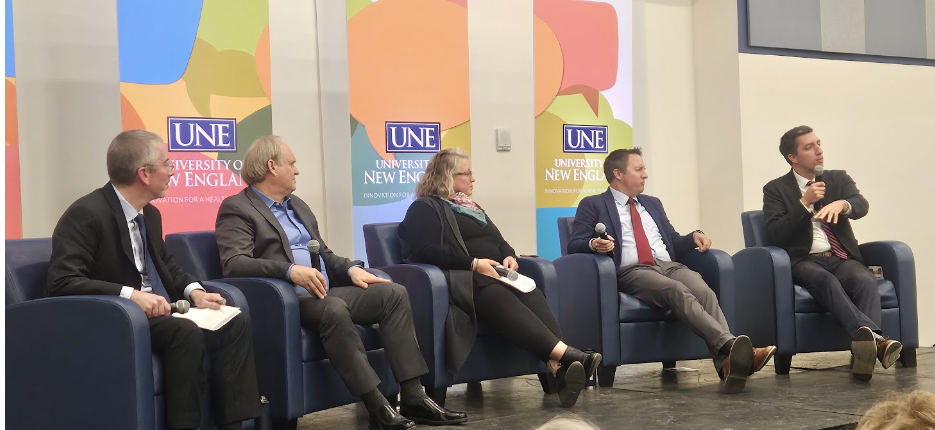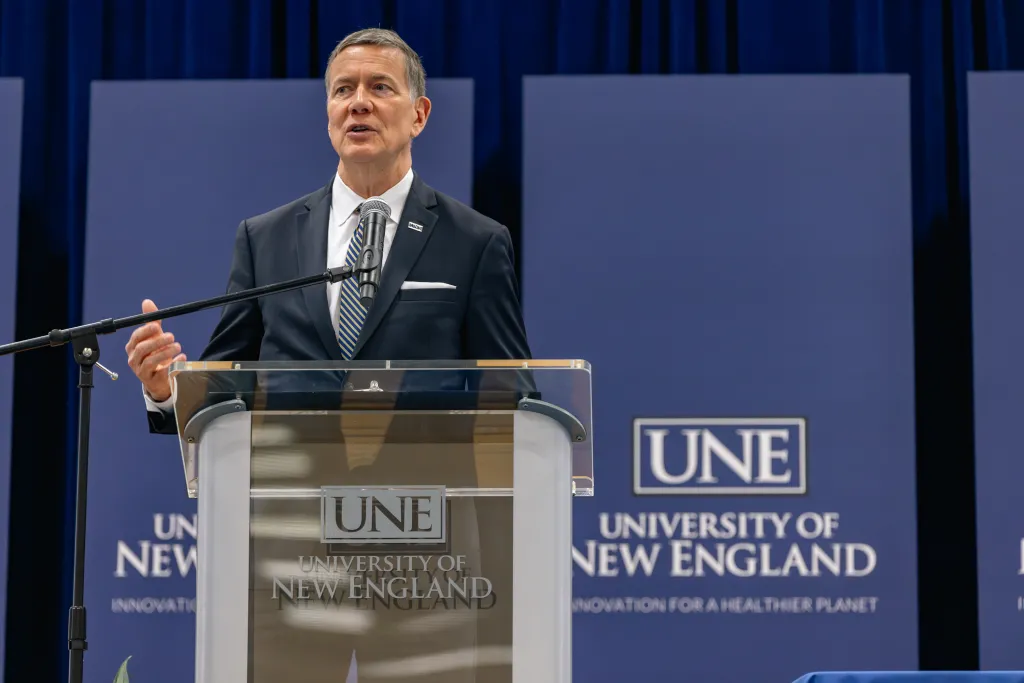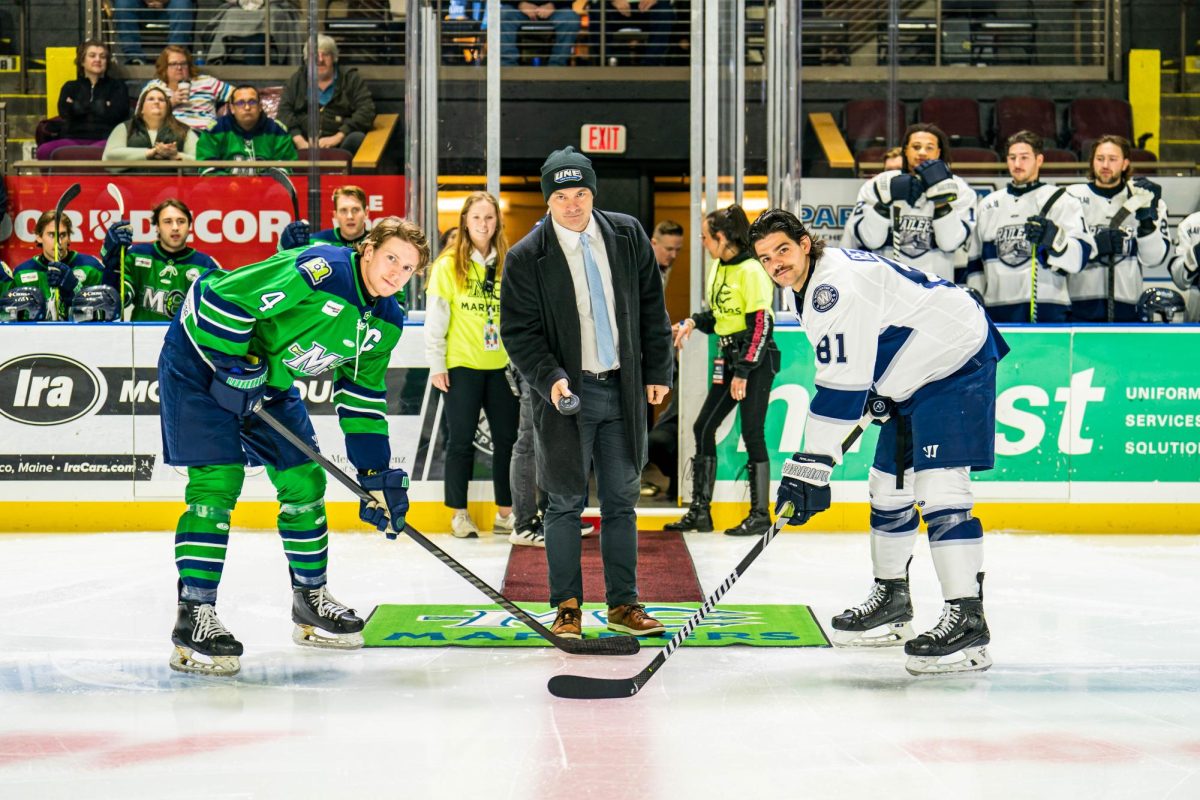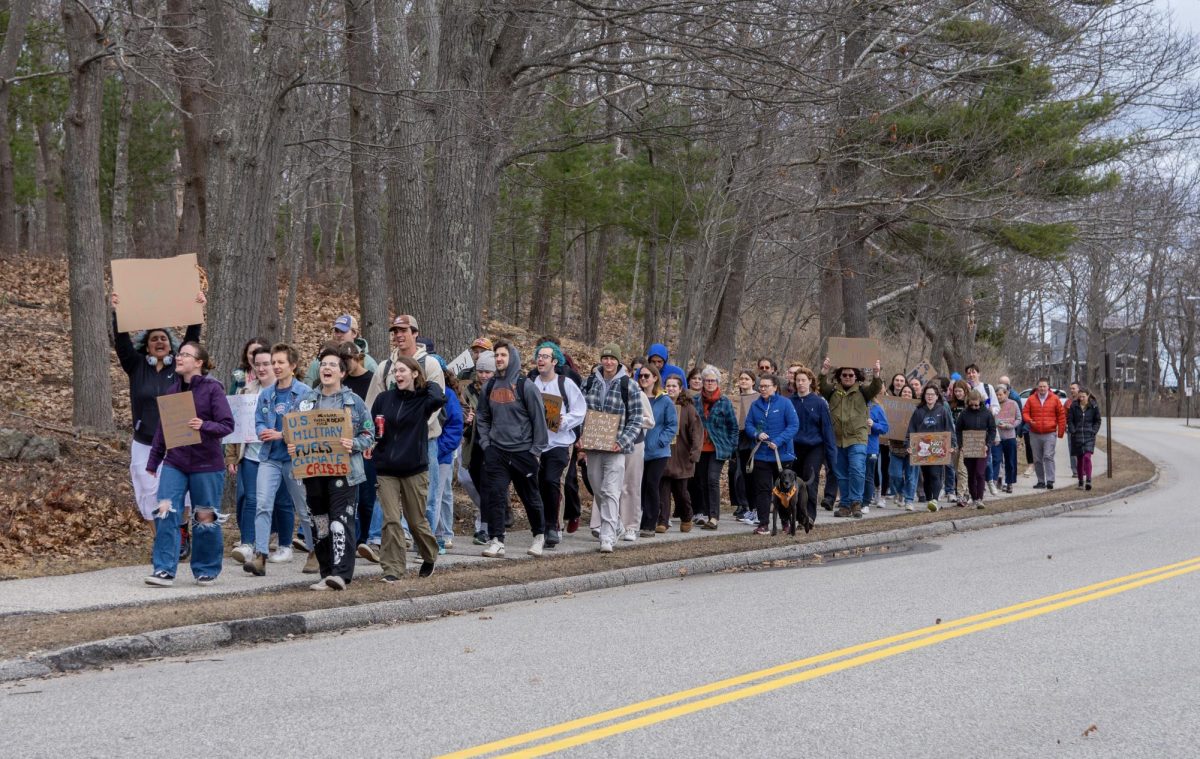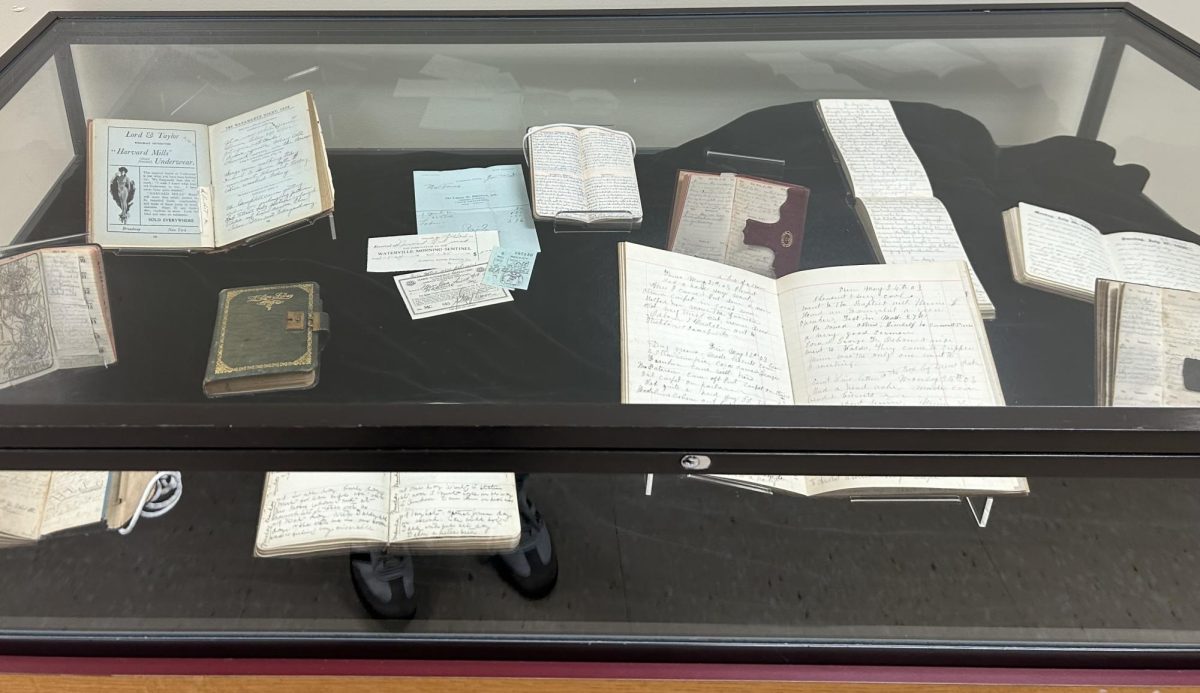Tight whispers and tense shoulders could be seen amongst the crowd prior to the commencement of the most recent President’s Forum: ‘Election 2024: Left, Right, or Unrecognizable.’ What do they mean, and where do you lie? An expectation of acidic arguments unsettled attendees, though quickly, the Forum’s guest debaters quickly reminded the crowd of the efficacy and importance behind the elementary concepts of engaged listening and meaningful conversation.
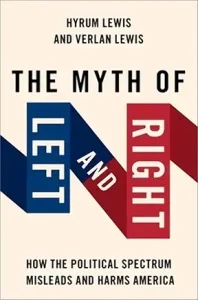
On October 16th, the University of New England hosted the 8th President’s Forum at the Harold Alfond Forum on the Biddeford campus. Verlan Lewis, stirling professor of constitutional studies at Utah Valley University, and his brother Hyrum Lewis, professor of history at Brigham Young University, argue in their book The Myth of Left and Right that the differences between the political left and right were held together purely by party loyalty rather than an underlying philosophy.
On the opposite side of the debate were Bryan Caplan, professor of economics at George Mason University, and his colleague Robin Hanson, associate professor of economics at George Mason University. The debate was moderated by Shannon Zlotkowski, the assistant provost for Diversity, Equity, and Inclusion at UNE.
The core thesis offered by the Lewis brothers has three simple arguments. One, politics is a very complex area with many different issues. Two, spectrums are designed to visualize a single issue. And three, since politics is comprised of many issues, we should not use a spectrum to describe politics. Hyrum Lewis argues that the two major political parties are “a bundle of positions, not a philosophy,” he said.
The opposition from Caplan and Hanson was two-fold. Caplan argued that though the political spectrum might not be the most accurate way to depict political viewpoints, it is still useful. “The more generalized statement, though less exactly right, are more productive,” said Caplan.
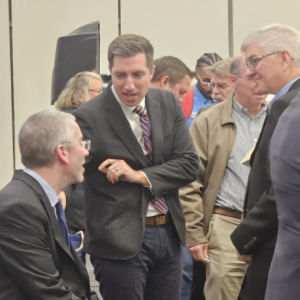
Hanson argued that though party loyalty and a need to belong to a group are driving factors in American politics, there is still an underlying commonality between the positions that draw people into the parties in the first place.
During the Q&A segment that followed the debate, the speakers shifted to offering voters advice about the current political climate. “Find another identity to find fulfillment other than politics,” offered Hanson.
Both Lewis brothers agreed that the best way to stop the ongoing polarization in this country is to have conversations with people in your local area. “People are much more interesting than this ‘flat character,’” said Verlan Lewis.
The next President’s Forum event will be a discussion of liberal bias amongst faculty on college campuses held on February 13, 2025, at the Harold Alfond Forum.



